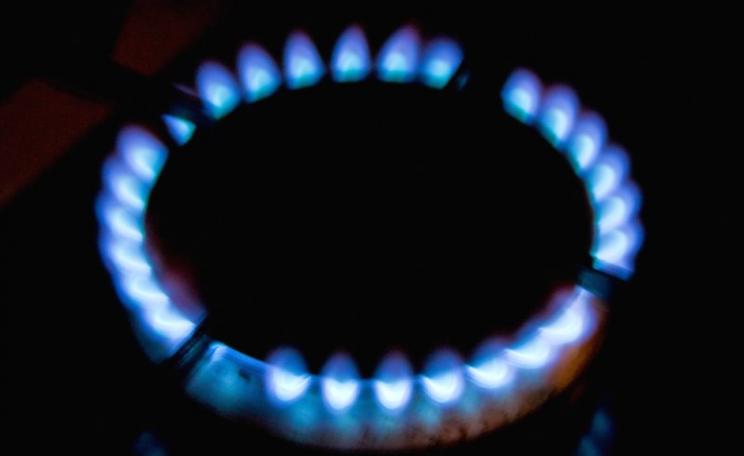UK energy policy is driven by a view that supply must be continually matched to an inflexible demand. That 20th century ideology needs radical updating. Today's world offers almost unlimited opportunities to mould demand to the available supply.
We were told early last week that the government will pay existing power stations a fee for staying open over the winter of 2017/18.
A similar scheme is already in place for later years. Old power stations, which would probably otherwise close, will be paid about a billion pounds as a bribe to remain ready to generate power. This scheme is called the 'capacity auction'.
The government is convinced this is the right way to ensure that we never - or virtually never - lose electricity supply. I want to suggest three schemes that would have represented much better value for money.
In fact, in the longer run they will all save householders substantial amounts of cash, rather than costing us money. These are
- Pay people to reduce their electricity demand at home, probably by providing a game with prizes.
- Hand out LED light bulbs to reduce household electricity use by replacing the increasing numbers of inefficient halogen lamps in kitchens and living areas.
- (I do realise that this next suggestion is deeply counter-cultural but I make it nevertheless). Tell people when an electricity blackout is likely; ask them voluntarily to reduce their power use at that time. I suspect the results would be far better than anybody thinks is possible.
In this post, I'm going to look at the first of these options. (An article on the unassailable reasons for handing out free LED bulbs will follow. This second post will use analysis I have been done for Greenpeace on the impact of switching to LEDs on peak power demand).
First, let's get our facts straight ...
First of all, we need a few numbers to start the discussion on 'games' to reduce power demand.
- Over the next couple of years, the government thinks that up to 8.5 gigawatts of fossil fuel electricity generating capacity may decide to close.
- It believes that these closures can be expected to result in electricity demand exceeding supply for 38 hours a year. (Probably this means 1-2 hours on around 25 weekdays in December and January, when demand is highest).
- During each of these hours, the forecast is that an average of about 2 gigawatts of demand is not met. This is about 4% of typical peak demand. (I suspect that this will usually mean that one area of the country representing about 4% of demand will be disconnected for the period of 1-2 hours). On average, each household will lose power for about 2.25 hours if the forecasts are correct. (1.5 hours of loss 1.5 times a year).
- Now here's a number that we should look twice at: the government says that the 'cost' to society of this power outage is £17,000 for each megawatt hour of electricity not supplied, or £17 a kilowatt hour. The average household is using about 1.1 kilowatts at the December peak, so the cost of not having electricity is put at about £19 an hour, or about £28 for the typical outage of 1.5 hours for the average home. That's about 150 times what the lost electricity would have cost, by the way.
I don't believe the real figure is more than a tiny fraction of this but the important thing is that this number represents the assumed cost of TOTAL loss of power. We can agree that a power cut is potentially costly and inconvenient to householders. But, by contrast, having to cut usage in half, perhaps by turning off the washing machine, has a negligible impact on us.
- By December 2017, I guess there will be 9 million smart meters in UK homes. That means 1 in 3 households will be able to change their rate of consumption of electricity and have this measured independently by a third party.
Some of the implications of these numbers include:
UK energy policy is driven by a view that supply must be continually matched to an inflexible demand. That 20th century ideology needs radical updating. Today's world offers almost unlimited opportunities to mould demand to the available supply.
- If we could reduce demand by 2 GW below what it would have been at peak, most outages would not occur in the winter of 2017/18 and, second, the numbers affected by any power cuts would be much reduced.
- There are about 27 million households in the UK. If we could in some way reduce the average electricity demand in these homes by 100 watts at 5 o'clock on a December evening, we would save 2.7 gigawatts. That's less than a 10% reduction in typical household power consumption.
- Or if we cut power use in smart meter homes by 300 watts, we could make a similar saving. On average, that would mean a cut of less than 30% below the average usage level.
- Either way, we substantially reduce the threat of power outages.
Paying people to reduce their electricity demand.
Around the world utilities are introducing 'time of use' pricing for home users. Take power from the grid at times of peak demand and you pay a higher price. This is the market working in its conventional way, choking off usage at times when supplies are tight. It works because it punishes.
It may not be the best way of getting people to use less. Rewarding socially beneficial behaviour could be at least as effective. If a power supplier paid its customers for keeping their usage low, demand will also fall.
And there is lots of money available to offer as a reward. The government's capacity market is expected to cost £38 a household across the 27 million homes in the UK. That means we have over £100 available for each of the 9 million homes that have smart meters.
One incentive scheme for smart meter homes might use the following format. On the 25 days a year that demand is expected to exceed supply in the early evening, a message is sent to the phones of people in the scheme. Pay people £4 for keeping their household electricity demand below an average of 250 watts over the critical 1-2 hour period. (That's below a quarter of typical household use).
Someone who successfully plays the game 25 times would make £100. If the government wants to encourage smart meter takeup, I can't think of a better incentive.
Then there's the social aspect to this. If you are wealthy, £100 may not be worth the inconvenience of switching off the dishwasher, turning most of the lights out and avoiding using the cooker for an hour or so. But for those who are short of cash, this amount of money could make a difference. It's potentially a highly progressive, rather than regressive, policy.
20th century thinking won't solve 21st century problems
This all sounds far-fetched, impossible even in today's connected world. But the young Silicon Valley company Bidgely ('electricity' in Hindi) shows how it might work. Bidgely puts an app on your phone that informs you in real-time what your energy usage is. When the power emergency arrives, it tells you when you need to reduce your electricity draw. As importantly, it then gives you instant updates on how your home is performing against the target of 250 watts.
One of Bidgely's strengths is that it recognises the power use signature of each major appliance in the house. (The heaters in electric dryers cycle on and off in short bursts, for example). So the app can send an alert that warns the householder which appliances are using a lot of power and threatening the attainment of the reward. Bidgely doesn't need to put sensors on each appliance. At the end of the emergency period, a signal is sent to the smartphone saying what the average usage has been and whether or not the prize has been won.
Of course it's also increasingly easy to imagine times when the National Grid has too much power. We have already seen several instances this year. Instead of rewarding power use reduction, Bidgely could give you cash for turning on appliances instead.
Bidgely's investors and customers include the German giants E.ON and RWE, still two of the biggest private utilities in the world. Both companies say their business will move from operating giant fossil fuel power stations to providing a variety services to electricity customers. It's easy to see how Bidgely might provide a key part of this.
That's the first option of the three listed above. Instead of rewarding fossil fuel generators for promising to stay open, pay individual householders a decent reward for cutting their demand when told to. It would be cheaper, and instead of going to elderly power stations the money would largely arrive in the bank accounts of the less well-off. (Although the other beneficiary group might be the young London professionals who are not home, and therefore not using much electricity, when the power shortage looms).
There's one thing that continually strikes me about UK energy policy. It's driven by a view that supply must be continually matched to an inflexible demand. That 20th century ideology needs radical updating. Today's world offers almost unlimited opportunities to mould demand to the available supply.
If we don't have the generating capacity to meet demand for a few hours each winter, the answer surely does not lie in spending a billion pounds on diesel generators and superannuated coal-fired power stations.
Instead we could pay some money, probably largely to less well-off households, to reduce demand until the emergency passes a couple of hours later.
Chris Goodall is an expert on energy, environment and climate change, and a frequent contributor to The Ecologist. He blogs at Carbon Commentary.
This article was first published on Carbon Commentary. Ideas expressed in this article are explored in far greater detail in The Switch, a book about the global transition to solar power, to be published in June 2016 by Profile Books.







